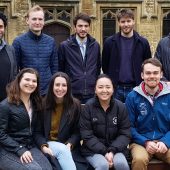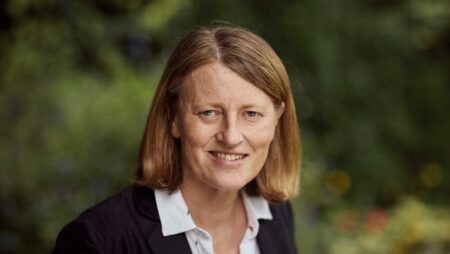Full project title:
The Internet, Political Science and Public Policy: Re-examining Collective Action, Governance and Citizen-Government Interactions in the Digital Era
Overview
This programme of research addresses the challenge to political science arising from widespread use of the Internet, meaning that in many countries, large tranches of political, economic and social life have now moved online. The Internet has brought changes to people’s information-seeking behaviour and to political communication, facilitates mass mobilization, reconfigures the ‘logic’ of collective action, provides new possibilities for coordination and collaboration and has both facilitated and required organizational change in government and other political institutions, with implications for institutional design and governance arrangements.
The aim of the three-year programme is to identify and examine the gaps in how political science has responded to these developments – and develop a more sophisticated theoretical, empirical and methodological response for the future study of political behaviour in a networked society. As an empirical development, widespread use of the Internet cannot challenge the assumptions, definitions or principles of theories or conceptual frameworks of political science. But it does alter the costs and benefits of political actions, reshaping incentives for individuals to act collectively; can alter the viability of certain institutional and organizational forms; can level the playing field of democratic engagement; or introduce new inequalities into popular control. For these reasons, the Internet challenges some of the micro-foundations of political science understanding.
The programme will rise to this challenge by tackling the following objectives:
- To develop new theories and conceptual frameworks to study citizens and governments online
- To develop new ways of using the Internet to generate real-time data about citizen behaviour online
- To develop methodologies for studying online political behaviour, such as collective action and government-citizen interactions, in particular through laboratory, field and web-based experiments
- To contribute to knowledge and understanding of the impact of the Internet on political behaviour and governance models
- To contribute to policy and practice through input into the design of electronic interfaces that maximise citizen participation, facilitate the most effective governance arrangements and institutional design and enhance information exchange between governments and citizens
Research Questions
Research questions to be tackled by this programme of research fall into two key areas: political participation and collective action; and models of governance and citizen-government interactions.
Political Participation and Collective Action
The Internet has proved itself as a forum for political participation, with a range of arguments and evidence that ‘changes in the cost and variety of sources of information immediately available to Internet users directly affect levels of political participation’ (Bimber 2003). Online petitions are signed by millions; demonstrations are organised online; a huge diversity of politically oriented groups operate on social networking and media sites such as Facebook and Twitter; and Internet activity played an important part in the revolutions and mass protests in Arab states in 2011. Use of the Internet seems to be significantly related to political activism even when controlling for prior social or attitudinal characteristics of Internet users such as age, education and civic duty (Norris 2009: 135). Furthermore, cost reduction in certain types of coordination can facilitate the creation of new types of group, that exist wholly online and work on the basis of matching heterogeneous individuals with similar or complementary aims across national boundaries, such as Avaaz or Kiva.
A key question therefore is how the Internet reconfigures the ‘logic’ of collective action, reshaping costs, benefits and therefore incentives to participate and challenging Olson (1965)’s famous argument that large interest groups organising around public goods will always find it difficult to form because of the costs of organization and the ‘free-rider’. A number of scholars have reconsidered the logic of participation, arguing that the Internet advantages some collective endeavours and endangers others (Lupia and Sin 2003: 318), revising the ability of large groups to organize and apply the type of social pressure that small groups can exert, so we might expect a re-patterning of interest group ecology. We have developed a quantitative approach to this question in two experiments (one in the laboratory, one in the field) to measure the effect of ‘social information’ that individuals receive about the participation of others.
Another key research question relates to leadership. The traditional view of ‘leaders’ in political mobilizations is that they provide coordination, collective aims, group identification and private incentives able to promote, maintain and enlarge voluntary membership, participation and contribution to a community or group (Colomer 2009), requiring a range of resources from skills, expertise and economic resources to personality traits and characteristics leading to Weberian ‘charismatic leadership’. Mainstream political science assumes that the traditional view of leadership remains untouched by the Internet, while others argue that charismatic new ‘cyberchiefs’ are playing an increasingly important role in bringing together ‘online tribes’ (O’Neil 2009: 43). In contrast to either of these accounts, this research will examine the hypothesis that the Internet facilitates ‘leadership without leaders’. Many of the coordination activities traditionally carried out by activists can be carried out in a ‘zero touch’ way via the Internet, which could lead to a ‘minimalist’ view of the leaders’ role derived from work by Schelling (1978; 2006) and Colomer (1985; 2009).
In any collective endeavour, there will be one or more ‘tipping’ points, at which the majority of people think it is worth joining. Each individual will have their own such point (‘k’); Schelling argues that we can expect a normal distribution of k, with a few people most likely to be ‘leaders’ or ‘starters’ for whom ‘k’ is very low. It could be argued that the existence of a small number of people with low ‘k’ (‘starters’) is what is crucial in online mobilization. Once a ‘critical mass’ of starters have initiated joining, the mobilization can take place via a series of chain reactions in which enough ‘followers’ with higher levels of ‘k’ will join, when given ‘social information’ on how many other people have participated (Margetts, John et al. 2009). The research programme will investigate the joining patterns of ‘starters’ and ‘followers’ using a further two experiments to investigate the interaction between social information and personality (which could indicate an individual’s ‘k’) and long-term ‘scraping’ of mobilization data from the Internet, discussed below.
Digital-Era Governance and Government-Citizen Relationships
Political science thinking on public administration has been characterised by successive overarching models of reform which have promised ever more ‘modern’ government and have dominated the agenda for a significant period of time; ‘progressive era’ public administration based on the Weberian model of bureaucracy from the late nineteenth century (Hood 1994) and, from the early 1980s, ‘New Public Management’ (NPM), with core themes of disaggregation, incentivization and competition (Dunleavy, Margetts et al. 2006; Hood 1994; Barzelay 2000; Pollit et al. 2007). In the 21st century, Patrick Dunleavy and Helen Margetts developed the model of Digital Era Governance (DEG) as a potential new ‘paradigm’ for public administration which will replace NPM (Dunleavy, Margetts et al. 2006). In contrast to NPM which involved fragmentation and rising complexity, Digital Era Governance involves joining up across departments and agencies, client-focused structures and disintermediation through the digitalization of processes, so that in effect governmental organizations can ‘become’ their online presence.
This programme of research will extend and develop the DEG model to take account of Web 2.0 developments and newer technologies which could go further in terms of generating more responsive government and allow citizens to enter the ‘front office’ of government (see von Hippel 2005), ‘co-creating’ public services by generating information that was not previously available and institutionalising feedback loops, allowing patients to give feedback on healthcare they have received, pupils and parents to give feedback about schools and so on. Already, with respect to health care there are a number of UK web sites (such as www.patientopinion.org and www.iwantgreatcare.com developed by medical professionals) which allow such feedback, and the UK government has attempted to institutionalise a similar facility in its flagship ‘NHS Choices’ website. The possibilities for ‘DEG 2.0’ will be explored across the countries (Australia, Britain, Canada, Japan, the Netherlands, New Zealand, UK, US) covered in Dunleavy and Margetts (2006), adding two European countries (Germany and Spain) and applying the ‘fuzzy set’ analysis method to identify key characteristics associated with more innovative developments. It will also include a ‘webcrawling’ exercise to map the structure of e-government in these countries, exploring the relationship between offline and online institutional configurations and two experiments to explore what type of web 2.0 platforms maximise citizen engagement and enhance information retrieval (see below).
Methods
The Internet both necessitates and requires methodological innovation, in terms of adapting traditional methods and developing new ones geared to an online environment, which will be a key contribution of the project to social science. The range of possibilities is huge, but this programme will focus on two; new methods of generating and analysing large-scale datasets from the Internet; and experimental methods.
Generation and Analysis of Large Scale Transactional Data
The Internet itself is a rich source of empirical data about social and political behaviour, offering the possibility of obtaining ‘real’ transactional data about behaviour rather than responses to opinion surveys (Savage and Burrows 2007), which remains under-exploited in political science. When the OII doctoral student Max Loubser downloaded the complete edit history of Wikipedia, he was able to analyse the entire transaction history of an organization for perhaps the first time. A key aim of the research is to develop such ways to use the Internet itself to generate data. First, looking at individual behaviour, we have started a pilot project to automatically ‘scrape’ data from the No. 10 Downing St E-petition site to obtain diffusion patterns, which has generated sustained data runs of over 2000 ‘joining curves’ of petitions, which we are currently analysing. The research programme includes a range of plans to generate further data, for example scraping similar sites in Germany and other countries; conducting a network analysis of ‘tweets’ and ‘retweets’ in political mobilizations on Twitter; and analysing the millions of political videos (downloaded over 1.5 billion times during the election) on YouTube.
To look at organizations online, we will use ‘webmetric’ analysis, which involves using dedicated software to crawl the web and establish the pattern of links between websites to gauge the structure of online networks. For a given organization, such an analysis includes looking at ‘inlinks’ coming into a website to indicate the organization’s online visibility and centrality; ‘outlinks’ pointing out to other sites, which indicate how outward looking an organization appears to be; and the navigability of paths of links internal to the domain. It has been used to analyse the structure of the Internet and WWW, political parties (Ackland and Gibson 2006) and the blogosphere, but a research team led by OII was the first to apply it systematically to government. We plan to use webmetric analysis to compare the structures of online governments, assessing the relationship between institutional configurations and online presence in different countries and using link analysis to assess the relationship between government and other societal organizations in each country.
Experiments
Experimental methodologies have long been part of social psychology, have become popular in economics, and still more recently in political science and sociology (see Margetts and Stoker 2010; Margetts 2011). Experiments offer huge scope for generating new insight into what shapes online behaviour by testing specific reactions to different information environments. At UCL in 2004, Helen Margetts led a research team running experiments to compare the ‘nodality’ of government websites across three countries, triangulating the results with webcrawling analysis of the same governments to refine both methodologies (Petricek et al. 2005; Escher et al. 2006).
With some seed funding from the Oxford University Fell fund, Helen Margetts and the economist Nir Vulkan set up a laboratory for social science experiments (OxLab) in the Said Business School, and have run around 10 experiments here, including experiments to examine various aspects of citizen-government information exchange and interaction for NAO studies (NAO 2007; NAO 2009) and two experiments into the impact of social influence on collective action behaviour in collaboration with Peter John, director of the ESRC project, Rediscovering the Civic, which involved a range of field experiments to investigate how to maximize civic behaviour.
Early findings provide some evidence of threshold effects, generating the hypothesis that only when some ‘critical mass’ is reached does social information have a positive effect on participation. As part of this research programme, this hypothesis will be tested in two experiments, one in the laboratory and one in the field, where social information will be varied across control and treatment groups with the aim of identifying one or more threshold points. The ultimate aim is to develop ‘Internet-as-field’ experiments for the political world of the kind developed by Duncan Watts (Salagnik et al. 2006), which used custom-built websites to investigate the effect of social information about the preferences of others on cultural markets, involving over 14,000 subjects. Findings of experiments like these in policy contexts could have real impact on public policy design.
Another two experiments will examine citizen-government interactions, examining what motivates citizens to participate in recommender systems and feedback loops, building on an earlier experiment on citizen redress conducted for the Nuffield Administrative Justice project, in which citizens were asked to complain about unsatisfactory treatment or services and differentially provided with information about how many other people had also complained. Initial findings suggesting that it was the interaction between personality and feedback information that affected propensity to complain will be further investigated in this research programme.
References
- Ackland, R. And Gibson, R. (2006) Hyperlinks and horizontal political communication on the WWW: The untold story of parties online. The Australian National University.
- Barzelay, M. (2000) The new public management: Improving research and policy dialogue. Berkeley: University of California Press.
- Bimber, B. (2003) Information and American democracy: Technology in the evolution of political power. New York: Cambridge University Press.
- Colomer, J. (2009) The Science of Politics. New York: Oxford University Press.
- Dunleavy, P., Margetts, H., Bastow, S. and Tinkler, J. (2006) Digital-era Governance: IT Corporations, the State and e-Government. Oxford University Press.
- Escher, T., Margetts, H., Petricek, V. and Cox, I. (2006) Governing from the centre? Comparing the nodality of digital governments. Presented at the 2006 Annual Meeting of the American Political Science Association, 31 Aug-4 Sept 2006.
- Lupia, A. and Sin, G. (2003) Which public goods are endangered?: How evolving communication technologies affect the logic of collective action. Public Choice 117: 315-331.
- Margetts, H., John, P., Escher, T. and Reissfelder, S. (2009) How many people does it take to change a petition? Paper to panel, ‘Contemporary Collective Action Dilemmas’ at the ECPR General Conference Potsdam, September 10-12 2009.
- National Audit Office (NAO) (2009) The Department of Work and Pensions: Communicating with Customers. London: The Stationery Office.
- National Audit Office (NAO) (2007) Government on the Internet: progress in delivering information and services online. London: The Stationary Office. HC 529 Session 2006-7.
- Norris, P. (2009) The Impact of the Internet on Political Activism: Evidence from Europe. In: C. Romm and K. Setzekorn (eds) Social Networking Communities and E-Dating Services (I-Global).
- Olson, M. (1965) The Logic of Collective Action. Cambridge: Harvard University Press.
- O’Neil, M. (2009) Cyber Chiefs: Autonomy and Authority in Online Tribes. Pluto Press.
- Savage, M. and Burrows, R. (2007) The Coming Crisis of Empirical Sociology. Sociology 41 (5) 885-899.









